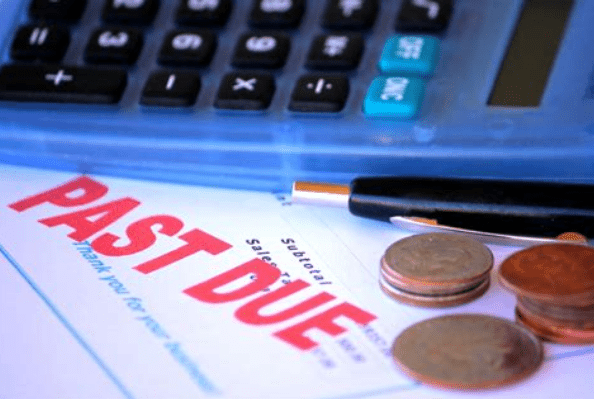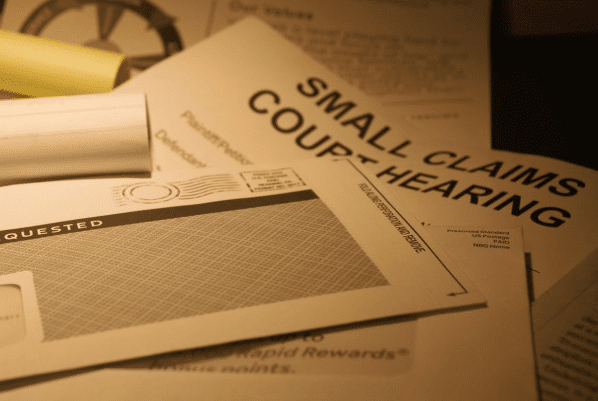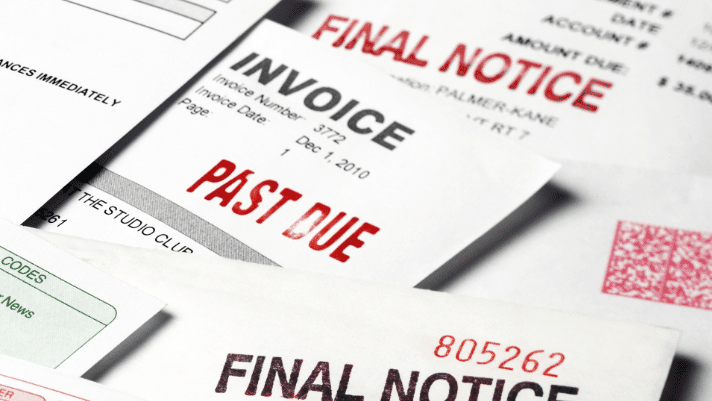Facing a debt lawsuit in Texas can be daunting, but it’s crucial to respond promptly to protect your rights. In justice court, you have 14 days, and in district court, you have 20 days to file an Answer to the Summons and Petition. This document allows you to address each claim and assert any affirmative defenses you may have.
ZumaZip’s Answer form simplifies this process, allowing you to respond quickly and accurately to your debt lawsuit. With ZumaZip, you can navigate the legal requirements with ease, ensuring that your response is filed on time and effectively addresses the claims against you.
Getting sued for a debt is hard. This article will make the process of responding to a debt lawsuit a little bit easier and tell you how to answer a summons for debt collection in Texas.
Below, you’ll find helpful topics on how to answer a summons for debt collection in the Lone Star State. This list includes information specific to filing in Texas, like state deadlines and forms.
Table of Contents
- What happens when you’re served
- Deadlines
- Texas Answer Forms
- Steps to Respond to Petition
- What is ZumaZip?
- Your Debt is Sold to Collection Company
- Statute of Limitations on Debt in Texas
- If You Haven’t Been Sued Yet
Here’s what happens when you’re served papers for debt in Texas
A debt lawsuit begins when the plaintiff (the person suing) serves a court Summons and Complaint to the defendant (the person being sued). The Summons is the official document that notifies the defendant about a lawsuit. The Complaint outlines the specific claims, or allegations, against the defendant. Proper service is should be completed through one of the following way:
- Hand delivered by a sheriff or constable
- Hand delivered by a court certified person over 18 years of age
- Sent via certified mail with a return receipt requested (can be sent by the clerk of court or the plaintiff’s attorney)
- Hand delivered by any other person authorized by law
After you’re served, the clock starts ticking on the deadline for you to respond before you lose by default.
There is a deadline to answer a debt collection Summons in Texas
Generally, you have 14-20 days to respond in Texas, depending on which type of court your case is in. If you fail to respond within the deadline, the plaintiff may file a default judgment against you. If the court approves it, this type of judgment gives the plaintiff the legal right to garnish your wages, seize your property, and put liens on your home or car. To avoid default judgment, you should respond to the Summons and Complaint ASAP.
Justice court deadline: The deadline to respond in justice court is 14 days from the day of service. If the 14th day falls on a weekend or holiday, the Answer is due by the very next day the court is open.
District court deadline: The deadline to respond in district court is a little bit more complicated. You should file your Answer by 10 am on the Monday after 20 days have passed since you were served.
For example, Freddy is served with a Summons and Complaint for his credit card debt on April 1, 2022. If his case is in the justice court, Freddy has until the end of the day on April 15, 2022 to respond. If his case is in the district court, Freddy has until 10 am on Monday, April 25th, to respond.
Use these Texas forms to Answer your Summons for debt collection
Texas doesn’t have a statewide Answer form, but there are still several options available online to help you draft an Answer. You can also check with the court your case is in to see if they have a specific form for their court. Here are some great options for drafting an Answer:
- ZumaZip Answer – Use our Answer form to respond to a debt collection lawsuit in less than 10 minutes. Our form works throughout all of Texas, and we help Texans win in court everyday. We’ll have an attorney review it and file it for you.
- CV-Ans-102 Civil Answer – This is a four-page, paper form.
- Texas Appleseed form – This is another form that includes affirmative defenses.
- Other Forms – Here are other useful forms for a debt collection case in Texas.
Follow these steps to respond to a debt collection case in Texas
There are three steps to respond to the Summons and Complaint:
- Answer each issue listed in the Complaint
- Assert affirmative defenses
- File the Answer
Let’s take a look at each step.
1. Answer each issue listed in the Complaint.
Answering the Complaint can be scary, but with these instructions it will be simple. Just read the complaint and then decide how you want to respond to each numbered paragraph. You can respond in one of three ways:
- Admit: Like saying, This is true.
- Deny: Like saying, Prove it.
- Deny due to lack of knowledge: Like saying, I don’t know.
Generally, attorneys recommend denying all the claims in the Complaint. If a claim is denied, the plaintiff has to prove that it’s true. This takes more work, time, and resources on their part. In fact, many debt collection agencies would rather dismiss the case than prove the allegations they’re making.
Here are some official instructions to make your complaint in Texas. On the Texas Answer Form, you can make a general denial if you disagree with everything in the complaint; you can also make specific pleas, or request, assert affirmative defenses, and make a Request for Judgment.
Draft your Answer with ZumaZip in minutes.
2. Assert affirmative defenses.
To assert affirmative defenses, you simply state reasons why the person suing you has no case. Add the relevant defenses to your answer.
Here are some of the more common defenses we see:
- The account with the debt is not your account
- The contract was already canceled. Therefore you don’t owe the creditor anything.
- The statute of limitations has expired. A statute of limitations is a law that sets a deadline on an action. Creditors and debt collections agencies can only sue you for a debt if they are within this deadline. Read our section on the statute of limitations below to learn more.
- The debt has been paid or excused.
- The debt has been partially paid.
- You were a co-signer but were not informed of your rights as a co-signer.
These are a few of the many affirmative defenses. It’s important to bring these defenses up in your initial response, because once the case progresses, you won’t be able to bring them up in court again. Keep in mind that being unable to pay the debt is not normally a legal defense to the debt.
ZumaZip makes it easy to make the right defense.
3. File the Answer
After you’ve made your Answer, you need to file it into the case. Filing the Answer is sometimes harder than drafting it. Luckily, Texas accepts filing through mail or e-file, so it’s a bit easier on the defendant.
If you choose to send your Answer document in the mail, follow these steps:
- Print two copies of your Answer
- Mail the original copy to the court via certified mail
- Mail the other copy to the plaintiff’s attorney via certified mail
The address for the court and plaintiff’s attorney should both be on the Summons document you received in the mail. The court’s address is usually listed in the first two paragraphs. The attorney’s address should be on the top left of the first page.
If you’d rather try filing your Answer electronically, use this site to access the Texas e-file portal.
ZumaZip can help file your Answer in Texas.
Why ZumaZip?
ZumaZip is a convenient solution for responding to debt collection lawsuits in Texas. It simplifies the process by guiding you through each step via a user-friendly web application. ZumaZip asks you all the necessary questions to complete your answer accurately and comprehensively.
Once you’ve completed your response, you have the option to print the forms and mail them to the courts yourself. Alternatively, you can choose to have ZumaZip file the documents for you, including having an attorney review the completed document. This streamlined approach ensures that you meet the necessary requirements and deadlines while minimizing the complexity of the process.
When your debt is sold to a debt collection company, you may still be liable
It’s true that when your debt is sold to a debt collection company, you may still be held liable for it. Creditors often sell debts to collection agencies, who then attempt to collect the full amount owed from you. These agencies typically acquire debts at a significantly reduced rate, which means they stand to profit if you repay the full amount.
Before making any payments to a collection agency, it’s essential to conduct thorough research. Verify the legitimacy of the debt and ensure that you’re dealing with a reputable agency. Understanding your rights and options can help you navigate the situation effectively and protect yourself from unfair practices.
Example
In this scenario, Angel finds herself in a challenging situation with LVNV Funding LLC, a debt collection company that purchased her old debt from American Express. Facing repeated calls and now a Summons and Complaint, Angel must navigate her next steps carefully.
LVNV Funding stands to profit significantly if Angel pays the full debt they claim she owes, considering they acquired it for much less than its original amount. However, Angel has options to address this situation smartly.
Filing an Answer to the lawsuit in court is a prudent move, allowing Angel to contest the claims against her and potentially negotiate a settlement. Given that collection agencies often accept settlements for less than the original debt, Angel could explore this option to resolve the matter. She might even be able to settle for less than half of the initial amount, still leaving LVNV Funding with a profit.
By taking proactive steps and engaging with LVNV Funding to reach a mutually beneficial agreement, Angel can work towards resolving the debt while protecting her financial interests.
But, before negotiating a settlement, Sally should make sure the debt is actually valid (i.e. within the statute of limitations, correct amount, proper ownership is granted to LVNV Funding, etc.).
The debt might be past the statute of limitations in Texas
The statute of limitations is the time period in which a creditor or debt collector can initiate a lawsuit to collect a debt. The statute of limitations on debt is only 4 years in Texas. This means that if no activity (payment, acknowledging the debt, accepting a debt repayment plan, agreeing to a debt settlement amount, etc.) has occurred on an account for 4 or more years, the person who owes the debt on the account cannot be sued for it.
Example continued
In Angel’s situation, because she hasn’t made any payments or changes on her account for 5 years, LVNV Funding LLC is legally barred from suing her. This crucial detail should be included in her Answer to the Summons and Complaint, leading to the dismissal of her case.
This example underscores the importance of verifying a debt before taking any action. If Angel had sent LVNV Funding LLC a Debt Validation Letter before they pursued legal action, she could have potentially avoided the lawsuit altogether. Most collection agencies are reluctant to invest time and resources in validating a debt, preferring to focus on easier targets. Therefore, a Debt Validation Letter can often deter further collection efforts.
You can make a Debt Validation Letter with ZumaZip’s help in minutes.
What if I haven’t been sued yet?
If you’ve only received a collections notice, but not a lawsuit, the best way to respond is with a Debt Validation Letter. When a debt collector contacts you in any way, whether it’s by phone or mail, you can respond with a Debt Validation Letter. This letter notifies the collector that you dispute the debt and requires they provide proof you owe the debt. They can’t call you or continue collecting until they provide validation of the debt. This flowchart shows how you can use a Debt Validation Letter to win.
Get started with a Debt Validation Letter here.
You can still settle after receiving the Summons
You can reach out to the creditor or debt collector to settle your debt at any point in the lawsuit. However, it’s best practice to file your Answer with the court and serve the plaintiff’s attorney first, then reach out about settling.
Some collectors can get pretty tricky. If you’ve worked out a settlement plan with them after they file a lawsuit against you, they might go behind your back and file a default judgment if you don’t file your Answer. For this reason, it’s best to negotiate a settlement after you’ve filed your Answer. Send them a Debt Lawsuit Settlement Letter, and settle your debt for less than you owe.
Beat a debt collector in Small Claims court (Dallas)
To defeat a debt collector in Small Claims court in Dallas, Texas, it’s essential to understand and follow the legal process. Initially, the plaintiff will serve you with the Summons and Petition for debt, initiating the lawsuit. Your crucial first step is to respond before the deadline to prevent default judgment. Filing your Answer promptly is imperative.
Additionally, consider reaching out to the plaintiff’s attorney after responding to the lawsuit. This proactive approach allows you to explore potential settlement options. Reviewing and understanding the steps outlined above can significantly enhance your chances of success in court. By adhering to the legal process and being proactive in seeking resolution, you can effectively navigate the Small Claims court system and defend against the debt collector’s claims.
What is ZumaZip?
ZumaZip is a convenient solution designed to streamline your response to a debt collection lawsuit. Here’s a breakdown of what you can expect when you use ZumaZip:
Firstly, you’ll access our user-friendly web application, which guides you through the process step by step. You’ll be prompted to answer a series of questions related to your specific situation. Once you’ve completed the questionnaire, you have the option to either print out the finalized forms and mail them to the appropriate courts yourself, or you can opt to utilize ZumaZip’s services to file them on your behalf. Additionally, if you choose this option, an attorney will review your document for added peace of mind.
If you’re seeking guidance on how to effectively respond to a debt collection lawsuit, ZumaZip can provide the assistance you need. Feel free to explore our FAQs for more information on what ZumaZip has to offer.
What if I haven’t been sued yet?
If you’ve only received a collections notice, but not a lawsuit, the best way to respond is with a Debt Validation Letter. When a debt collector contacts you in any way, whether it’s by phone or mail, you can respond by formally requesting a debt validation with a Debt Validation Letter . This letter notifies the collector that you dispute the debt and forces them to provide proof you owe the debt. They can’t call you or continue collecting until they provide validation of the debt. This flowchart shows how you can use a Debt Validation Letter to win.
Get started with a Debt Validation Letter here.
How to Answer a Summons for debt collection in all 50 states
Here’s a list of guides on how to respond to a debt collection lawsuit in each state:
- Alabama
- Alaska
- Arizona
- Arkansas
- California
- Colorado
- Connecticut
- Delaware
- Florida
- Georgia
- Hawaii
- Idaho
- Illinois
- Indiana
- Iowa
- Kansas
- Kentucky
- Louisiana
- Maine
- Maryland
- Massachusetts
- Michigan
- Minnesota
- Mississippi
- Missouri
- Montana
- Nebraska
- Nevada
- New Hampshire
- New Jersey
- New Mexico
- New York
- North Carolina
- North Dakota
- Ohio
- Oklahoma
- Oregon
- Pennsylvania
- Rhode Island
- South Carolina
- South Dakota
- Tennessee
- Texas
- Utah
- Vermont; Vermont (Small Claims court)
- Virginia
- Washington
- West Virginia
- Wisconsin
- Wyoming
Guides on how to beat every debt collector
Hey there! Facing off against a debt collector can feel like a daunting challenge, but fear not! We’re here to help you navigate through it all with our handy guides designed to assist you in beating every debt collector you encounter. Whether you’re facing a new lawsuit or dealing with a persistent collector, we’ve got your back. Stay positive, stay informed, and let’s tackle this together!
- Absolute Resolutions Investments LLC
- Accredited Collection Services
- Alliance One
- Amcol Clmbia
- American Recovery Service
- Asset Acceptance LLC
- Asset Recovery Solutions
- Associated Credit Services
- Autovest LLC
- Cach LLC
- Cavalry SPV I LLC
- Cerastes LLC
- Colinfobur
- Covington Credit
- Crown Asset Management
- CTC Debt Collector
- Cypress Financial Recoveries
- Delanor Kemper & Associates
- Eagle Loan of Ohio
- Educap
- Estate Information Services
- FIA Card Services
- Forster & Garbus
- Freshview Solutions
- Fulton Friedman & Gullace LLP
- Harvest Credit Management
- Howard Lee Schiff
- Hudson & Keyse LLC
- Integras Capital Recovery LLC
- Javitch Block
- Jefferson Capital Systems LLC
- LVNV Funding
- Mannbracken
- Mariner Finance
- Medicredit
- Michael J Adams PC
- Michael J Scott
- Midland Funding LLC
- Mullooly, Jeffrey, Rooney & Flynn
- Mountain Land Collections
- MRS Associates
- National Collegiate Trust
- Nationstar Foreclosure
- Northstar Capital Acquisition
- NCEP LLC
- NRC Collection Agency
- OneMain Financial
- Palisades Collection LLC
- Pallida LLC
- Paragon Revenue Group
- Pinnacle Collections Agency
- PMAB LLC
- Portfolio Recovery Associates
- Provest Law
- PYOD LLC
- Reunion Student Loan Finance Corporation
- Revenue Group
- Regents and Associates
- RSIEH
- Salander Enterprises LLC
- Second Round Sub LLC
- Security Credit Services
- Sherman Financial Group
- Suttell and Hammer
- T-Mobile
- Transworld Systems
- Tulsa Teachers Credit Union
- UCB Collection
- Velo Law Office
- Velocity Investments
- Waypoint Resource Group
- Weinberg and Associates
- Wolpoff & Abramson
Settle your medical debt
Having a health challenge is stressful, but dealing medical debt on top of it is overwhelming. Here are some resources on how to manage medical debt.
- Am I Responsible for My Spouse’s Medical Debt?
- Do I Need a Lawyer for Medical Bills?
- Do I Need a Lawyer to Fight Medical Bill Debt?
- Does Bankruptcy Clear Medical Debt?
- How Much Do Collection Agencies Pay for Medical Debt?
- How to Find Medical Debt Forgiveness Programs
- Is There a Statute of Limitations on Medical Bills?
- Medical Debt Statute of Limitations by State
- Summoned to Court for Medical Bills — What Do I Do?
- Summoned to Court for Medical Bills? What to Do Next
Stop calls from Debt Collectors
Do you keep getting calls from an unknown number, only to realize that it’s a debt collector on the other line? If you’ve been called by any of the following numbers, chances are you have collectors coming after you, and we’ll tell you how to stop them.



































